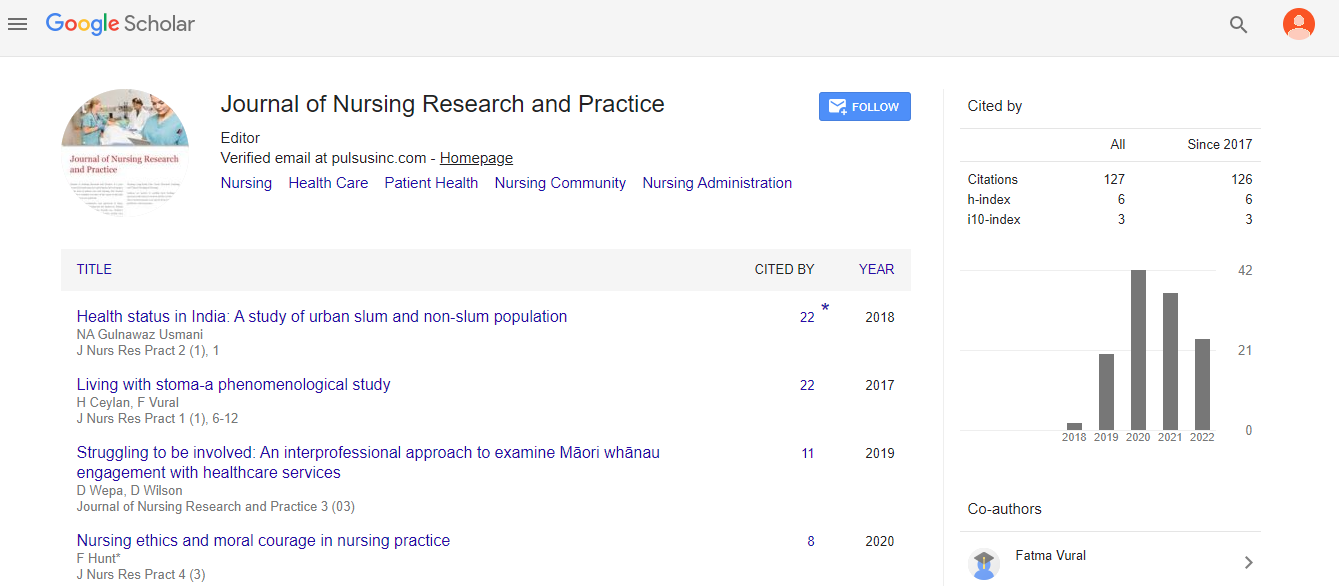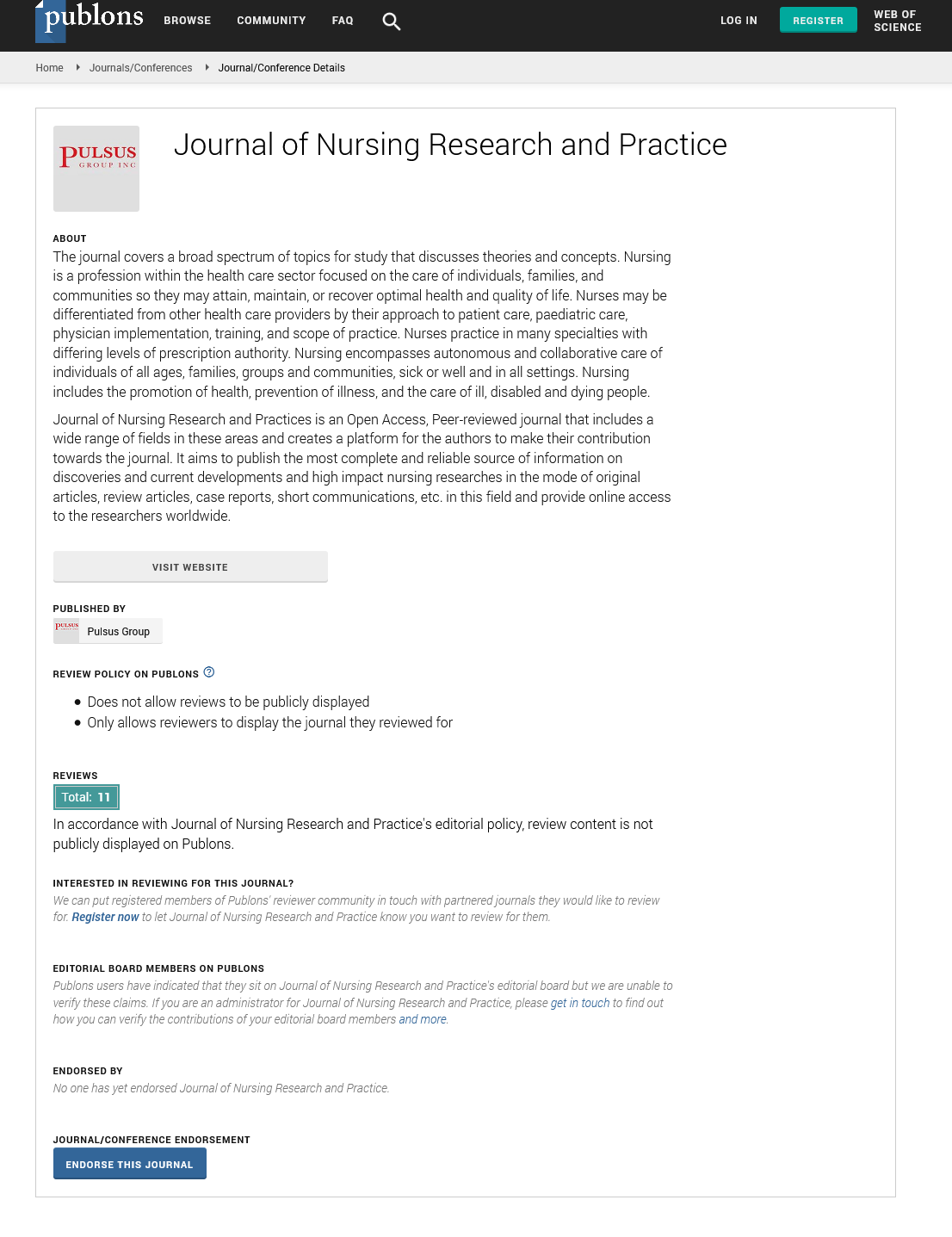
Sign up for email alert when new content gets added: Sign up
Formulation of herbal repellent from the volatile oils of lemon grass (Cymbopogon winterianus)
Joint Webinar on 7th International Conference on Global Healthcare & 4th International Conference on Addiction Research and Therapy
October 08, 2021 | Webinar
Nwanya Emmanuel
Centre for Integrated Health Programs, Nigeria
Posters & Accepted Abstracts: J Nurs Res Pract
Abstract :
Lemon grass (Cymbopogon winteriatus) has been widely acclaimed to possess therapeutic, cosmetic and insecticidal activities. This study was conducted using a field controlled trial by human volunteers to confirm the effectiveness and applicability of locally-produced Lemon grass oil as a mosquito repellent and adulticidal agent for the prevention of mosquito-borne diseases in Nigeria. Volatile oil was extracted using petroleum ether as solvent while olive oil was used as oil base. The study was conducted between September and October 2017 and made use of 12 volunteers across three locations. The lotions were applied on exposed body parts of the volunteers and they worked three shifts daily. The biting rate, percentage repellence complete protection time and whole night protection were measured and recorded. Topical application of each lotion reduced the biting rate of mosquitoes across the three locations, with the 60% (v/v) exhibiting higher impact of 341 vs. 32; 438 vs. 44 and 388 vs. 33. The 60% (v/v) formulation also had the highest percentage repellence of 91.92% at Location I, offered a whole night protection against mosquito in location I and O and offered a Complete Protection Time (CPT) of 21.6, 18.93 and 20.8 respectively across all three locations. There was a significant statistical association r=0.94 (p<0.05) between concentrations of the lemon grass oil formulations and mean duration protection time against mosquitoes. All formulation exhibited adulticidal activities, with the 60% (v/v) formulation having higher impact, causing fast immobilization or paralyzing effect on some mosquitoes that were at close range to treated volunteer’s body. The study concludes that volatile oils of lemon grass possess mosquito (A. gambiae and An. funestus) repellent and adulticidal effects, especially at higher concentrations and can be used to reduce human-mosquito contacts and hence mosquito-borne diseases and irritation caused by their bites.
Biography :
Emmanuel Nwanya is a development worker that is desirous to have a hands-on career in public health for sustainable development, human rights and social justice. He holds a bachelor’s degree in Environmental Technology and Master of Public Health, with a diploma certificate from West African Postgraduate College of Environmental Health (WAPCEH). He has vast experience in program implementation, monitoring and evaluation, systems strengthening, capacity building, community need assessment and community mobilization. He is readily amenable to newer inventions and methodologies, teamwork for better efficiency and target driven achievements; delighted in facing empirical and research oriented challenges associated with technologies and scientific advancements.





